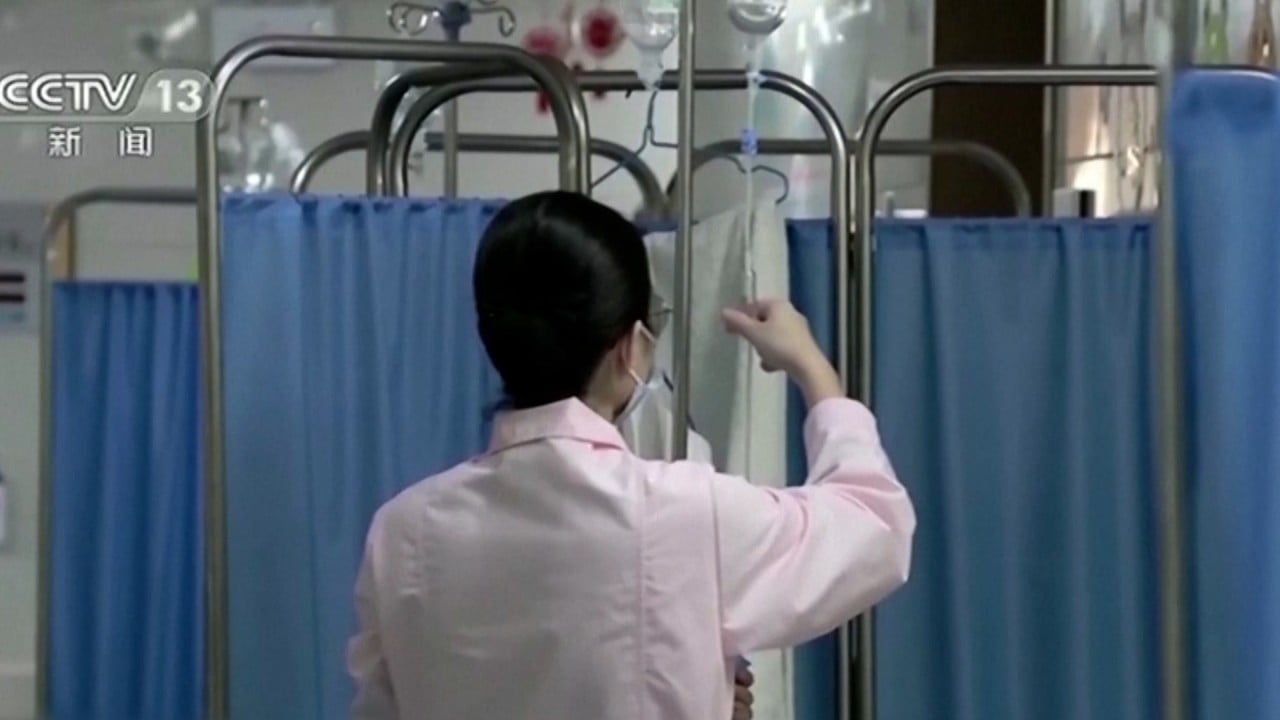Infection
No new pathogens in respiratory disease surge, China tells WHO
It is not unusual for the WHO to ask a member country to give further information regarding outbreaks. A country has 24 hours to respond.
The WHO request drew widespread attention as it revived concerns about the evolution of Sars-CoV-2, the virus that causes Covid-19, and the possibility of new pathogens, as well as debates about China’s transparency during the early stages of the Covid-19 pandemic.
Hong Kong coronavirus sewage check system may expand to look for flu
Hong Kong coronavirus sewage check system may expand to look for flu
Beijing told the WHO on Thursday that outpatient and hospital admissions of children with mycoplasma pneumonias started to rise as early as May. Respiratory diseases caused by other pathogens, including respiratory syncytial virus (RSV), adenovirus and influenza virus, began to jump in October.
Mycoplasma pneumonia bacteria infections usually cause mild respiratory symptoms. However, experts and officials said this year’s outbreak was particularly serious because of the bacteria’s macrolide resistance.
David Hui Shu-cheong, a respiratory expert at the Chinese University of Hong Kong, said doctors in Beijing had to obtain parents’ consent to prescribe antibiotics not usually used for children – so-called off-label use – because of macrolide-resistant mycoplasma pneumonias.
“Doxycycline treatment may lead to yellow discolouration of teeth and slow down the growth of bones in children and thus is usually not recommended for children below the age of eight, while fluoroquinoline may damage cartilage and thus is usually not recommended for people below the age of 18,” Hui said, referring to two such antibiotics recently prescribed.
“However when there is a high frequency of mycoplasma resistance to macrolide, the off-label use of these drugs is needed.”
Mainland experts have long warned of macrolide-resistant mycoplasma pneumonias.
A paper published by a group of mainland scientists from the Chinese Centre for Disease Control and Prevention (CDC) in 2013 said the resistance rate of mycoplasma among patients in Beijing was much higher than in other countries.
The paper said the extremely high resistance rates in Beijing may have been due to the inability to provide surveillance results, as well as the overuse of antibiotics.
Experts from the CDC in Shunyi district, Beijing, published a paper in 2019 about an outbreak in a primary school a year earlier.
A total of 55 students had been sick with mycoplasma pneumonias infection during the outbreak, and 25 of them were hospitalised for complications.
‘Better to work together’: world must learn from Covid-19, expert says
‘Better to work together’: world must learn from Covid-19, expert says
While other pathogens have since overtaken mycoplasma pneumonias as major causes of respiratory diseases among children, a directive issued by China’s State Council on Friday warned that pathogens causing influenza and mycoplasma pneumonias would proliferate throughout this winter and into next spring.

